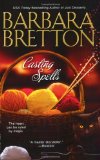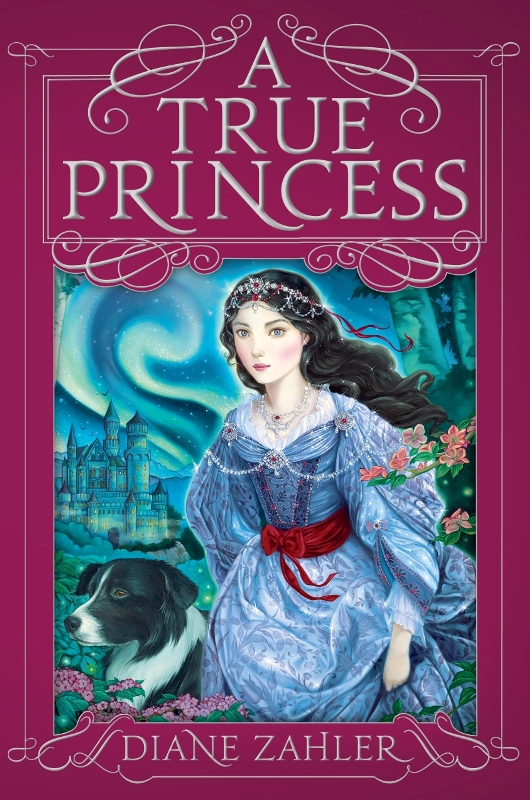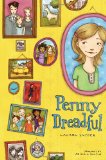Twitter has informed me that today is International Save Libraries Day. Since that’s a topic I feel passionate about, I feel compelled to make some comments on the subject.
Last week, a marvellous article was posted by Philip Pullman in response to the threatened Library cuts in the UK. I love how he explained that the people balancing their budgets by cutting libraries don’t seem to realize that libraries are about a lot more than money.
I especially love these lines:
“The public library, again. Yes, I’m writing a book, Mr Mitchell, and yes, I hope it’ll make some money. But I’m not praising the public library service for money. I love the public library service for what it did for me as a child and as a student and as an adult. I love it because its presence in a town or a city reminds us that there are things above profit, things that profit knows nothing about, things that have the power to baffle the greedy ghost of market fundamentalism, things that stand for civic decency and public respect for imagination and knowledge and the value of simple delight….
“Leave the libraries alone. You don’t know the value of what you’re looking after. It is too precious to destroy.”
Of course, this article especially hits home because budgets for libraries in my own county, Fairfax County, Virginia, have been slashed the last two years. I lost my own job, and was put to work in the Office for Children for six months instead — until a Librarian position came open after someone retired.
The crazy part is that Fairfax County prides itself on its highly educated work force and outstanding schools. The libraries get less than one cent of each tax dollar, yet the schools ask for a larger share of the budget pie each year. And, yes, I value those schools. My own son attends the high school rated number one in the nation by U.S. News and World Report, and that is the main reason why I will NOT consider moving out of Fairfax County as long as he is in high school.
However, working in the libraries, I see that for so many, many county residents, the libraries are not fluff. They are not about optional things like “culture,” but a vital way to support their children’s or their own education. They are how people access government basics like tax forms and employment basics like job applications and living basics like English classes and materials for learning English and acquiring US citizenship.
Recently a study came out that found “a strong link between library use and a pupil’s reading achievement and enjoyment.” These results are not a surprise at all to librarians, but perhaps would be surprising to our Board of Supervisors members who think that libraries are not essential to the community.
I also love the way the Philip Pullman article dashes the idea that libraries can be run by volunteers. He says:
“Nor do I think we should respond to the fatuous idea that libraries can stay open if they’re staffed by volunteers. What patronising nonsense. Does he think the job of a librarian is so simple, so empty of content, that anyone can step up and do it for a thank-you and a cup of tea? Does he think that all a librarian does is to tidy the shelves? And who are these volunteers? Who are these people whose lives are so empty, whose time spreads out in front of them like the limitless steppes of central Asia, who have no families to look after, no jobs to do, no responsibilities of any sort, and yet are so wealthy that they can commit hours of their time every week to working for nothing? Who are these volunteers? Do you know anyone who could volunteer their time in this way? If there’s anyone who has the time and the energy to work for nothing in a good cause, they are probably already working for one of the voluntary sector day centres or running a local football team or helping out with the league of friends in a hospital. What’s going to make them stop doing that and start working in a library instead?”
I love that paragraph because it points out how foolish, but how common, it is to undervalue librarians. This was especially brought home to me when I was transferred out of my Librarian I position into another job at another county agency at the same paygrade, a Management Analyst I. Note that since that time, the Management Analyst position was upgraded one paygrade, so now they are not at the same level.
A Librarian I position requires a Master’s degree. I have two. The Management Analyst I position does not require a Master’s degree at all. My former Librarian position as Youth Services Manager supervised two people. The Management Analyst position did not supervise anyone at all. The Youth Services Manager position was responsible for organizing the schedule for all library programs at the branch. The Management Analyst position didn’t have nearly that level of responsibility. Working as a Librarian, I get to help people daily — finding information for them for a multitude of reasons, sharing good books, helping children love reading, helping people find the resources to complete an assignment or pass a test or get a better job, and so much more. Working as a Management Analyst, I got to help the organization jump through hoops and satisfy government bureaucracy in the USDA Food Program. Yet the two positions were paid the same, and now a Management Analyst is paid more.
I don’t think most people realize that a Librarian job requires a Master’s degree, and that it’s actually used. After reading Philip Pullman’s article, one of my librarian co-workers commented that many of the smartest people she knows are librarians. I’ve found that true myself. And that’s one thing I love about a Librarian job — It actually uses my intelligence, far more than teaching college math did. Sure, I had to be smart to get the college math teaching job, but once I had the job, it was only about sharing what I already knew, not about using my intelligence to find new information. It was actually a disadvantage that math came easily to me — It was harder for me to understand how my students could possibly not understand!
It’s generally accepted in America that school teachers are valuable and should be paid more. I claim that librarians, who help people educate themselves, who provide help to entire communities, not just certain age groups, are also valuable and should be paid more. Of course, the field is hugely dominated by women, so it’s no surprise that the pay is not the same as a job that requires an equivalent amount of training in, say, the computer field. And the truth is, I love the job so much, I would do it for far less, if I could still afford rent. But that doesn’t mean I should do it for less!
And to tell the truth, as soon as they took my job away, I went in and volunteered at my old library on weekends. But I only volunteered a few times, and I only worked a couple hours at a time. You could not run a library with volunteers like that, but it did point out that I love the job so much, I’d do it for free.
Another great article I read this week was on the blog LaRue’s Views, titled “The Best Is a Bargain.” In this article, he asks people how much they pay for internet access and cable TV. Then he asks them how much they pay for their local public library. He says:
“The answer, based on national data, is this: households pay an average of $2.68 per month for their public libraries. Guess what. We provide education, entertainment, and social connection, too, except it actually benefits the entire community.”
He continues:
“I don’t own a terribly pricey home. But my library bill comes to $60.43. Per year. That’s $5.03 per month. It’s almost twice the national average. On the other hand, we are the number one library in the country for our population size, too.
So for $5 a month I can check out all the books, music, and movies I can use. I can take toddlers to free storytimes. I can go to civic events. I can see art, practice foreign languages, use really high speed public computers (although I may have to wait awhile for one to free up). I can even download library books and music from home, 24/7.
Libraries make our communities smarter and more interesting.”
When I commented to the member of the Board of Supervisors from my district that they had a “carryover” that was EIGHT TIMES the amount they’d cut from libraries, he responded, among other things, that library funding is not mandated, like school funding. They lumped libraries together with parks in the budget breakdown because those are “optional” services that the county is not compelled by law to provide.
To that I want to respond like Philip Pullman: “Leave the libraries alone. You don’t know the value of what you’re looking after. It is too precious to destroy.”
In a couple weeks, I’m doing a little piece of library advocacy myself. Back in June, I posted a review of the book This Book Is Overdue! How Librarians and Cybrarians Can Save Us All, by Marilyn Johnson. It made me proud to be a librarian, because it pointed out how library work has changed with the times and how more than ever we help people navigate today’s world.
She recently came across my review and offered me ten copies of the book — to send to the Fairfax County Board of Supervisors. I have gotten several Library Friends groups to help me send them, so we are going to send them to the Board of Supervisors, trying to make these points in particular:
1. Libraries are essential.
2. Cutting libraries hurts the community.
3. If you truly have priorities of serving Education and Human Services in the county, there’s no more cost-effective way to support those values for more people than supporting libraries.
I’ll finish up my comments with a link to a post from Wil Wheaton. Here’s someone who understands that the value of libraries and librarians goes way beyond money.
“Libraries are constantly under attack from people who fear knowledge, politicians who think guns are more important than books, and people who want to ensure that multi-millionaires pocket even more money. As an author, father, and a reader, I beg you: please support your local libraries in any way you can, and if you enjoy reading, take a moment to thank a librarian.”








